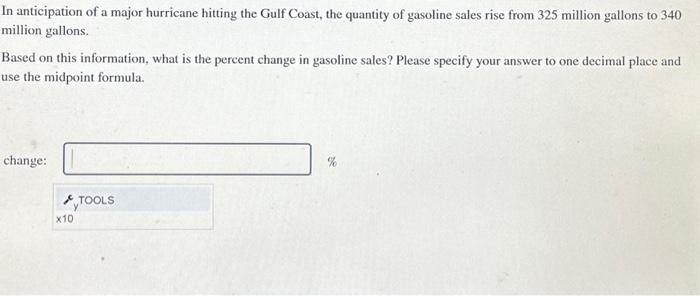In anticipation of a major hurricane hitting the gulf coast – With the looming threat of a major hurricane poised to strike the Gulf Coast, it is imperative to delve into the realm of preparedness and mitigation strategies. This comprehensive guide serves as an invaluable resource, arming individuals and communities with the knowledge and tools necessary to navigate the challenges posed by this impending meteorological behemoth.
As the storm’s path unfolds, understanding the potential impacts and implementing proactive measures becomes paramount. This guide will explore the essential steps to safeguard lives, property, and infrastructure, ensuring a resilient response to the hurricane’s wrath.
Precautionary Measures: In Anticipation Of A Major Hurricane Hitting The Gulf Coast

In anticipation of a major hurricane, it is crucial to take precautionary measures to safeguard your well-being and property. These actions include securing loose objects, boarding up windows, and evacuating if necessary.
Securing loose objects involves removing or fastening any items that could become projectiles in high winds. This includes lawn furniture, grills, and trash cans. Boarding up windows helps prevent shattered glass from causing injuries or further damage to your home.
If evacuation is advised by local authorities, it is essential to follow instructions promptly and seek shelter in a designated evacuation center or with family or friends in a safe location.
Additionally, creating an emergency preparedness kit is highly recommended. This kit should contain essential supplies such as non-perishable food, water, a first-aid kit, flashlights, batteries, and important documents.
Evacuation Planning
Evacuation planning is a vital aspect of hurricane preparedness. Familiarize yourself with different evacuation routes and destinations available in your area. Identify potential evacuation shelters and explore pet-friendly evacuation options if you have pets.
Developing an evacuation plan involves deciding where you will go and how you will get there. Consider multiple evacuation routes in case primary routes become impassable. Practice your evacuation plan regularly to ensure everyone in your household knows what to do in an emergency.
Communication and Information
Staying informed about the hurricane’s track and intensity is crucial for safety and decision-making. Utilize reputable sources such as the National Hurricane Center and local news outlets for accurate information.
Establish multiple communication methods, such as cell phones, landlines, and portable radios, to ensure you can stay connected during and after the hurricane. Charge all electronic devices fully and consider having backup batteries or chargers.
Social media and emergency apps can provide real-time updates and allow you to connect with others in your community. Use these platforms responsibly and follow official sources for accurate information.
Impact on Infrastructure
Major hurricanes can have a significant impact on infrastructure, including roads, bridges, and utilities. Be prepared for power outages and disruptions in communication services.
Power outages can last for days or even weeks. Have flashlights, lanterns, and extra batteries on hand. Keep refrigerators and freezers closed as much as possible to prevent food spoilage.
Infrastructure damage can also impact access to essential services. Identify resources available in your community to assist with repairs and recovery, such as utility companies and emergency response teams.
Financial Preparation

Hurricanes can have substantial financial implications, including property damage, business disruptions, and loss of income. Secure adequate insurance coverage for your home, vehicles, and belongings.
Explore financial assistance programs available through government agencies and non-profit organizations. Having an emergency fund in place can also help cover unexpected expenses.
Health and Safety
During and after a hurricane, prioritize health and safety. Avoid floodwaters, which can contain hazardous debris and contaminants. Stay away from downed power lines and report them to the appropriate authorities.
Maintain a first-aid kit with essential supplies and medications. Monitor food and water for spoilage and discard any contaminated items. Seek medical attention promptly if you experience any injuries or illnesses.
Access resources available for medical assistance and mental health support. Hurricanes can be traumatic events, and it is important to prioritize your well-being and seek help when needed.
Community Support

Community support is essential during and after a major hurricane. Identify local organizations providing volunteer opportunities and assistance to those in need.
Social media and online platforms can facilitate community outreach and support. Use these platforms to connect with neighbors, share information, and coordinate relief efforts.
Remember that we are stronger together. By working as a community, we can overcome the challenges posed by hurricanes and rebuild our lives.
Top FAQs
What are the most important precautionary measures to take before a hurricane?
Securing loose objects, boarding up windows, evacuating if necessary, and creating an emergency preparedness kit are crucial steps.
Where can I find information on evacuation routes and destinations?
Local authorities, emergency management agencies, and websites provide up-to-date information on evacuation routes and destinations.
How can I stay informed about the hurricane’s track and intensity?
Monitor weather forecasts from reputable sources, such as the National Hurricane Center, and utilize weather apps and social media for real-time updates.
What should I include in my emergency preparedness kit?
Essential items include non-perishable food, water, first-aid supplies, medications, important documents, and a battery-powered radio.